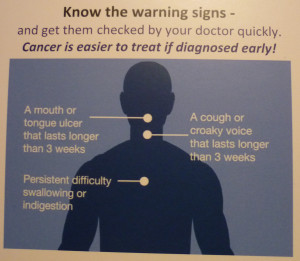Which Valve? A Personal Perspective
I had my laryngectomy over 15 years ago. From the outset I was aware of the possible speech options and was very keen to use a valve to speak. I was the first patient to receive a primary puncture at my local hospital. Though for the first few months it was not possible, I was keen to be able to change the valve myself. I was comparatively young and happily had no other health issues, which could impact on managing this myself. At that time the Nurse Specialist or ENT Clinic Sister took responsibility for this matter rather than a Speech and Language Therapist.
I have been very lucky and have had few complications along the way so I can still change the valve myself at home, when needed. The duckbill valves are very cheap compared to indwelling valves, which can only be replaced by a clinician. Carrying a couple of spares, I can change my valve without a visit to an ENT clinic or far worse to A&E, wherever I am in the country should the need arise.
The NHS is under great pressure at the moment. Changes are being made to where and when specialist services are available under sustainability and transformation plans. I recently became aware that one hospital trust has advised its laryngectomee patients that, in the event of a valve problem, if they turn up to an ENT clinic without an appointment, they may have to be admitted to a ward, depending on availability or otherwise of staff.(Just pray this doesn’t happen on a Friday when that may mean 3 nights in hospital!)
This situation raises several questions:
Are patients being encouraged to use valves they can manage themselves as much as they were ten years ago?
Would patients welcome the chance to be more independent of their hospital?
Of course some patients have complicated circumstances making self-management impossible. It may be the puncture is in a place that makes it impossible for them to change a valve themselves. There may be other medical or capability reasons why a clinician is needed to do this. The changes in the service since my laryngectomy may well mean more patients can be considered eligible for a valve and the quality of speech has notably improved I think. However, considering the benefits in terms of cost to the NHS and convenience for the patient Eric Blom’s original solution still seems to have a lot to offer.
The August edition of Whispers on the Web has an item looking at this topic – see the link below


